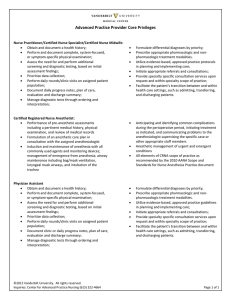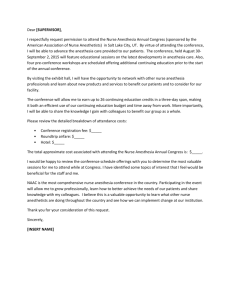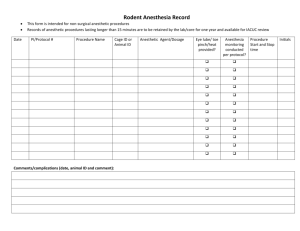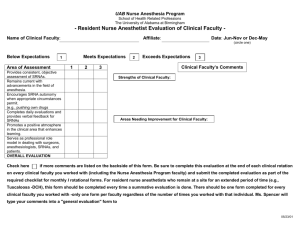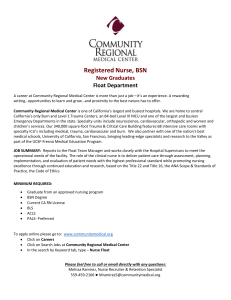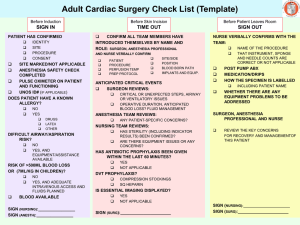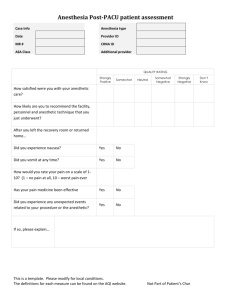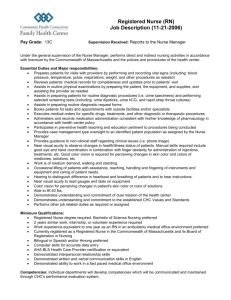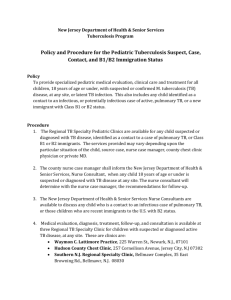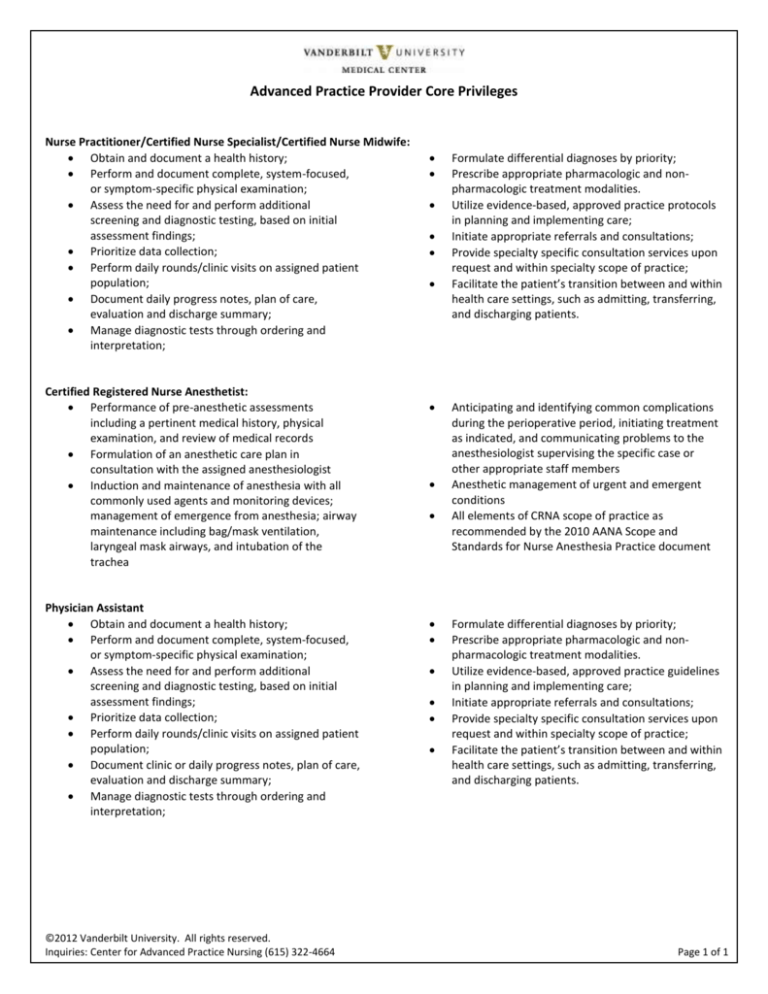
Advanced Practice Provider Core Privileges
Nurse Practitioner/Certified Nurse Specialist/Certified Nurse Midwife:
Obtain and document a health history;
Perform and document complete, system-focused,
or symptom-specific physical examination;
Assess the need for and perform additional
screening and diagnostic testing, based on initial
assessment findings;
Prioritize data collection;
Perform daily rounds/clinic visits on assigned patient
population;
Document daily progress notes, plan of care,
evaluation and discharge summary;
Manage diagnostic tests through ordering and
interpretation;
Certified Registered Nurse Anesthetist:
Performance of pre-anesthetic assessments
including a pertinent medical history, physical
examination, and review of medical records
Formulation of an anesthetic care plan in
consultation with the assigned anesthesiologist
Induction and maintenance of anesthesia with all
commonly used agents and monitoring devices;
management of emergence from anesthesia; airway
maintenance including bag/mask ventilation,
laryngeal mask airways, and intubation of the
trachea
Physician Assistant
Obtain and document a health history;
Perform and document complete, system‐focused,
or symptom‐specific physical examination;
Assess the need for and perform additional
screening and diagnostic testing, based on initial
assessment findings;
Prioritize data collection;
Perform daily rounds/clinic visits on assigned patient
population;
Document clinic or daily progress notes, plan of care,
evaluation and discharge summary;
Manage diagnostic tests through ordering and
interpretation;
©2012 Vanderbilt University. All rights reserved.
Inquiries: Center for Advanced Practice Nursing (615) 322-4664
Formulate differential diagnoses by priority;
Prescribe appropriate pharmacologic and nonpharmacologic treatment modalities.
Utilize evidence-based, approved practice protocols
in planning and implementing care;
Initiate appropriate referrals and consultations;
Provide specialty specific consultation services upon
request and within specialty scope of practice;
Facilitate the patient’s transition between and within
health care settings, such as admitting, transferring,
and discharging patients.
Anticipating and identifying common complications
during the perioperative period, initiating treatment
as indicated, and communicating problems to the
anesthesiologist supervising the specific case or
other appropriate staff members
Anesthetic management of urgent and emergent
conditions
All elements of CRNA scope of practice as
recommended by the 2010 AANA Scope and
Standards for Nurse Anesthesia Practice document
Formulate differential diagnoses by priority;
Prescribe appropriate pharmacologic and non‐
pharmacologic treatment modalities.
Utilize evidence‐based, approved practice guidelines
in planning and implementing care;
Initiate appropriate referrals and consultations;
Provide specialty specific consultation services upon
request and within specialty scope of practice;
Facilitate the patient’s transition between and within
health care settings, such as admitting, transferring,
and discharging patients.
Page 1 of 1

